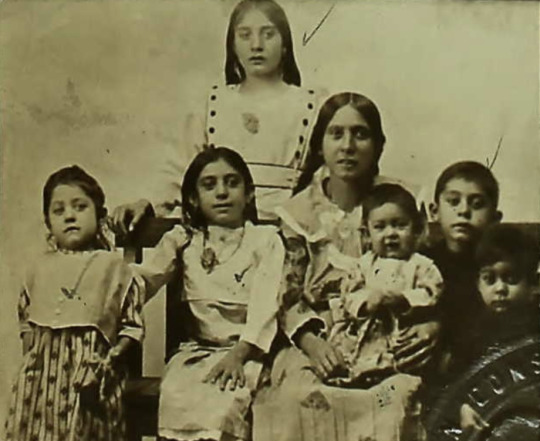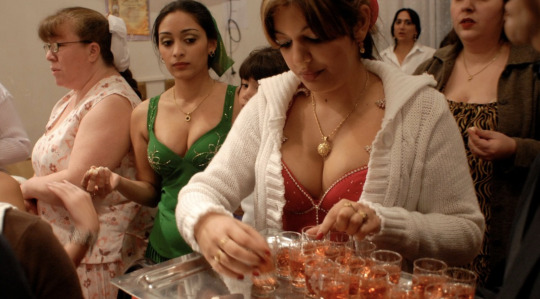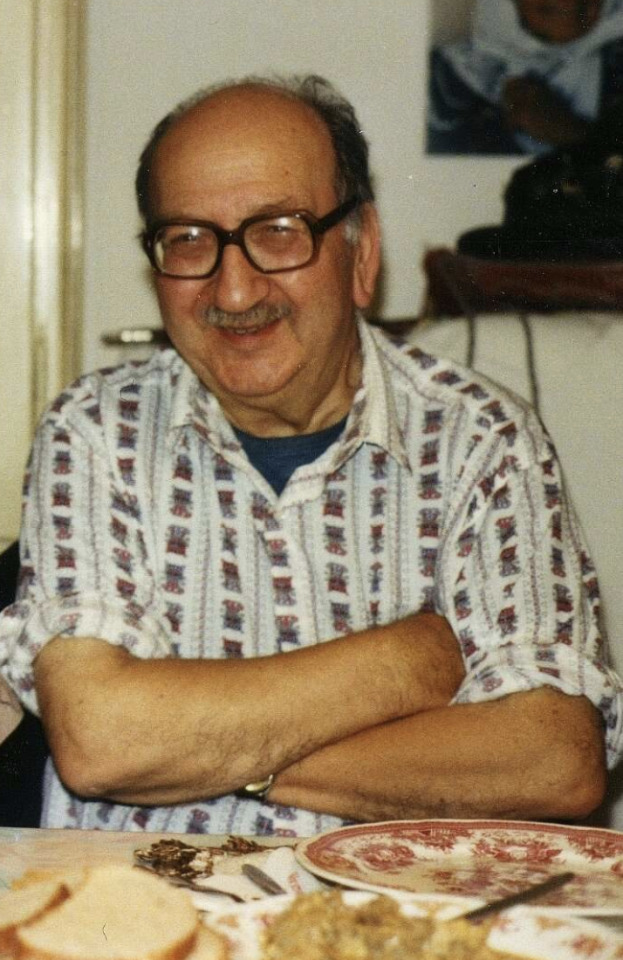Text
By Bernard Rorke
A young mother, Marica Mihajlović, posted a horrifying account of obstetric violence she experienced at the hands of a brutal doctor, mistreatment that culminated in the death of her baby. “He put his hand over my mouth, twisted my hands, threatened to knock out my teeth. He also insulted me based on my nationality, and he also told me that he would hit me and that I would have two skulls.” Worse was to follow.
The 27-year-old mum’s ordeal began on 11 January 2024, when she was admitted to the General Hospital of Sremska Mitrovica because she was a week overdue. Until then, everything had been fine and normal with the pregnancy. It was decided to induce the birth, and when nothing happened after an hour, it became apparent that she could not deliver naturally and that a c-section would be necessary.
When the gynecologist-obstetrician on shift, named by the news portal Republika as Dr. Marko Maksimović, turned up after some hours later, Marica recounted that “then the nurses tell him that nothing is happening, that I can't open up, but he insisted that everything continue ‘as it should’.” After hours of agony, she described her shocking ordeal:
“I beg and beg for the doctor's help to deliver me by caesarean section, to save my child, where at that moment he hits me and squeezes my jaw, threatening that he will hit me.” Then, as reported by Republika, the doctor jumped onto her stomach and tried to push the baby out, but it got stuck in the birth canal.
Marica told the reporter, “At that moment, I lost consciousness and was receiving oxygen, but the baby remained stuck. My rib was broken from that pressure, and the baby inhaled meconium. She could breathe in, but she couldn't breathe out and her heart stopped at 11:05 p.m.” The infant was resuscitated and rushed to a hospital in Novi Sad. The next day, at 6:00 a.m., Marica received a phone call informing her that her baby had passed away. The General Hospital of Sremska Mitrovica told Republika that an inquiry is underway.
Marica asked people to share her Facebook post and spread the word, for “I am not the first or the last victim of this doctor. The midwives say I have all their support and whatever it takes they will testify, as will the women who were with me in the delivery room. Beware of this man.”
Obstetric violence against Romani women ‘commonplace’
While in recent years, obstetric violence against women has gained growing attention globally, revealing it to be widespread and systematic in nature, it still remains highly underreported and in urgent need of being addressed from a rights based perspective. According to Hungary’s EMMA Association, young Romani women are particularly vulnerable to obstetric violence, and no European country has so far put in place legislation specifically criminalising it. Romani women often find themselves at the cruel intersection of racism, gender-based and institutional violence. This abuse implies
“the appropriation of women’s bodies and reproductive processes by health personnel, which is embodied in a dehumanising treatment, in abuses of medicalisation and pathologizing of natural processes, thus causing loss of autonomy and of free decision-making on a woman’s own body and sexuality, negatively influencing women’s quality of life.”
In 2017, a Romani women won her case before the Equality Body in Budapest following harassment and racist abuse by hospital staff while she was giving birth. The ERRC provided support to the litigant, in what was a first of its kind. The woman was alone in the hospital and intimidated by staff who threatened to put a pillow over her face to silence her, and to take her child away:
“The doctor also walked in and said ‘if you had shouted once more, I would have called the psychiatrist who would have taken your child away and then you wouldn’t receive the child benefit, because anyway, you gypsies give birth only for the money!’”
Research by the ERRC and its partners has revealed such forms of abuse to be commonplace across central and eastern Europe. A fact-finding investigation in Bulgaria revealed that Romani women routinely experience discriminatory treatment, segregated maternity wards, verbal and physical harrassment and obstetric violence in various public hospitals in Bulgaria.
Similar stories of abuse surfaced in North Macedonia, in one case a Romani women recounted how attempts to induce her contractions left her in such acute pain for hours that she could not refrain from crying out, prompting the nursing staff to insult her:
“Why are you screaming so loud? Shame on you, and you knew how to make five babies, you Gypsies are good only for that!” … Once the second nurse arrived, the childbirth started. I had no strength and was feeling dizzy. Both nurses continued to insult me and scorned me for having screamed. Suddenly, one of them slapped me across the face. I asked: ‘Why do you hit me?’ Instead of responding, the second nurse slapped me again saying: “because you squeal like a stuck pig. At that moment another person entered, most probably he was a medical assistant, and pressed my abdomen hard, so the baby came out.”
In Slovakia, according to Poradňa and the Center for Reproductive Rights, the widespread and historical practice of forced and coercive sterilization of Roma women is just one example of reproductive rights violations that Romani women face in Slovakia. Their monitoring over recent years has revealed that Romani women continue to face multiple forms of discrimination in the context of reproductive health care, including segregation in maternity wards, Roma-only bathrooms, verbal racial abuse, and ill-treatment by medical personnel.
Globally, obstetric violence has a long history, which reflects and amplifies different forms of social and political discrimination, oppression, and exclusion. As EMMA put it, this abuse is compounded by outdated and harmful birth practices, lack of soft skills and trauma-informed attitudes, the lack of transparency and accountability within maternity care are among the many factors that contribute to the abuse and harm done. Across Europe today, Romani women find themselves caught in this cruel intersection with traumatic consequences, and it’s time to end the silence. After her ordeal the Macedonian victim said: “I am still shaken from what I have gone through – being slapped, humiliated and inhumanely treated by nurses at the Clinic. I wonder whether this happened because, for them, I am a ‘Gypsy’ or are all women delivered like that.”
The ERRC has written to the Smremska Mitrovica General Hospital, the public prosecutor, and the Health Inspectorate within the Ministry of Health, to request that they consider the likely racist motivation for the doctor’s actions in their ongoing investigations. The Regional Medical Chamber of Vojvodina was also contacted in order to request that they initiate a disciplinary procedure to revoke the doctor’s medical license and protect future Romani mothers from violence.
48 notes
·
View notes
Text
The Swiss Special Fund for Needy Victims of the Holocaust decided on August 24, 1998 that only those Romani victims who were imprisoned in camps or under similar conditions during the World War II are eligible to apply to the Fund, despite previous statements that the Fund would give support to all persons who were persecuted for racial, religious, political or other reasons, and those who were in any other way victims of the Holocaust.
#romani#roma#switzerland#suisse#svizzera#schweiz#articles#samudaripen tw#porajmos tw#holocaust remembrance day#holocaust
35 notes
·
View notes
Text
His fate contrasts with that of another, unrelated, Reinhardt, according to the 102-page study. Anton Reinhardt, a 17 year-old German Gypsy with a Swiss mother, swam the Rhine in 1944 and tried to claim asylum in Switzerland as a conscientious objector. He was expelled and later shot while trying to escape from a Nazi concentration camp.
#romani#roma#switzerland#schweiz#suisse#svizzera#articles#holocaust remembrance day#porajmos tw#samudaripen tw#holocaust
41 notes
·
View notes
Text

Hilda Laníková, née Ondrášová, with her cousin. Hilda was born to a Romani family in what was then Czechoslovakia, and lived in the village of Tvorovice until she was six years old. in 1942, Hilda's father, Jan, was arrested and taken to Auschwitz, where he was murdered. Months after, the rest of Hilda' family was taken to the Gypsy Camp at Hodonín u Kunštátu. Eventually, the camp closed, and the remaining prisoners were to be taken to Auschwitz, but Hilda's family was sick with typhoid and were allowed to remain behind. Her six siblings who were not sick were transported to Auschwitz, where they were murdered. The surviving members of the Ondráš family were declared non-Roma and released. After their release, the family tried to escape to Slovakia, but they were detained at the border. They managed to survive the rest of the war in Tvorovice with the help of their neighbors. From Roma Testimonies.
#romani#roma#romové#czech republic#česká republika#česko#česky#articles#samudaripen tw#porajmos tw#holocaust remembrance day#holocaust
19 notes
·
View notes
Text
The family of prisoner Vahdet Akın have called for justice following his ‘suspicious’ death in Maltepe No. 1 Closed Prison in Istanbul. As reported on 4 December, on the news portal Cumhuriyet, the family’s lawyer claimed that Akın had clearly been beaten, and that injuries to his left eye and legs were recorded in the examination reports. According to an official statement Akın died of a brain hemorrhage, the prosecutor has reportedly declared it to be a ‘suspicious death’, and according to the lawyer, has initiated the necessary investigations. The family is awaiting the official autopsy report from the Forensic Medicine Institute.
26 notes
·
View notes
Text

Darrer Costello, daughter of Emil Mitchell, and her children.
12 notes
·
View notes
Text

Kalderash people in Argentina. Photo by Esteban Widnicky.
9 notes
·
View notes
Text

Kalderash people in Argentina. Photo by Esteban Widnicky
14 notes
·
View notes
Text

American Romani women at the welcoming parade for General Douglas MacArthur in 1951. Photo from RomArchive.
12 notes
·
View notes
Text
Today, Nedich, a passionate essayist and activist, remains the most prominent and successful novelist, both within the Roma community and within the broader landscape of Argentinian literature. It will take some time before the still unknown literary treasures of Argentinian Roma authors are discovered, for example the poetry of Juan Luís Aguilera, who was born in Santa Fe in 1928 and died in Buenos Aires in 2003, leaving behind a body of work that reflects on the relationships between the world and the universe, nature and humans.
14 notes
·
View notes
Text

Romani women meeting their husbands after mass arrests in Mogilev. Photo from Viasna.
9 notes
·
View notes
Text
In fact, at this point in history, sometimes it makes no difference if the picture has no message, since the narratives are now part of European folklore and popular culture. For example, if a blonde non-Roma child appears barefoot in a family picture, society will read it as a child playing. If the child is Roma, the assumption is that they are neglected by their parents. The same applies to most imagery associated with Roma, while non-Roma are immune to this specific gaze. Roma are instantly charged with the worst crimes of humanity if they dare to allow anybody to share a picture that portrays them in any way... so what to do?
9 notes
·
View notes
Text

Matéo Maximoff in Austria. Photo from RomArchive.
5 notes
·
View notes
Text
The 33-year-old Romani man, named Muszunye Mircea Vișan (known as Vișinel), died in a police station in Arad on the night of Friday 14th July, 2023 after police officers beat him until he went into cardiac-arrest. He was buried on the morning of 18th July in Lipova at a service attended by his family and friends. The family claims that the local police officers exceeded their duties, behaved abusively towards the man, and physically assaulted him until his death.
14 notes
·
View notes
Text
Jani Rustemaj, 27, was arrested at 15.00 on 13 April 2023 close to the “Delijorgji” residential block in Tirana by police officers from Police unit no. 2. He was later pronounced dead in police custody after going into a coma at the "Mother Teresa" University Hospital Center in Tirana due to an alleged methadone overdose.
Jani’s death has raised concerns about allegations of police misconduct and violence towards him in the hours preceding his death. The hospital initially attributed Jani's coma to a methadone overdose. However, his family denied these allegations by stating that their son was not a drug addict and had no health issues when the police took him into custody. The family accuse the police of exercising violence and have provided evidence of contusions, broken front teeth, and a broken leg as indications of police brutality, which they noticed and photographed during their visits to the hospital.
9 notes
·
View notes
Text
The President of Switzerland has apologized to the nation's 30,000 gypsies for the actions of a Government-backed youth charity that has acknowledged taking more than 600 gypsy children from their parents between 1926 and 1973 for their ''well-being.''
28 notes
·
View notes
Text

Stephan Yovanovich with his wife, Maria, and daughter, Rosie.
45 notes
·
View notes